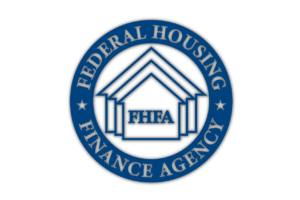Federal / Agency News

NH&RA Sends Senate Banking Committee Letter Supporting Nomination of Julia Gordon as FHA Commissioner
NH&RA sent a letter to the Senate Committee on Banking, Housing and Urban Affairs supporting the nomination of Julia Gordon as Federal Housing commissioner/assistant secretary for housing at HUD. The committee will consider Gordon’s nomination after they return from the Independence Day recess next week.

HUD Notice Extends Effective Period for 2019, 2020 QCTs, DDAs Not on Subsequent Lists
HUD published a notice in the Federal Register extending the period by 180 days for which certain 2019 and 2020 qualified census tracts (QCTs) and difficult development areas (DDAs) are effective for purposes of the LIHTC. The notice, in response to the COVID-19 pandemic and presidentially declared emergency, extends the eligibility period from 730 days to 910 days for properties in QCTs and DDAs that are not on subsequent lists of QCTs and DDAs and that submitted applications while the area was a 2019 or 2020 QCT or DDA.

HUD Publishes List of Granted Wavier Request for Q1 2021
HUD published a list of all the waiver requests it granted in the first quarter of 2021 for the offices of Community Planning and Development, Office of Housing and Office of Public and Indian Affairs. For further information about the regulatory waivers, please see the name of the contact person that immediately follows the description of the waiver granted.

Forty Percent of Public Housing at High-Risk from Natural Hazards
A new report from the National Low Income Housing Coalition and the Public and Affordable Housing Research Corporation examines the locations of project-based federally assisted properties in relation to risks for 18 types of natural hazards ranging from flooding and hurricanes to earthquakes and wildfires. One-third of federally assisted homes are in areas at very high or relatively high risk for negative impacts from natural hazards compared to one-quarter of all renter-occupied homes and just 14 percent of owner-occupied homes.

SAHF Members Reduce Energy and Water Use by 29, 24 Percent
In 2013, members of Stewards of Affordable Housing for the Future (SAHF) adopted the Big Reach with the goal of reducing energy and water use portfolio-wide by 20 percent by 2020. SAHF members surpassed the goals achieving 29 percent energy savings and 24 percent water savings portfolio-wide.

House Appropriations Subcommittee Approves USDA FY 2022 Bill
The House Appropriations Subcommittee approved the fiscal year 2022 Agriculture, Rural Development, Food and Drug Administration, and Related Agencies funding bill. The bill provides $26.55 billion in funding – an increase of $2.851 billion, more than 10 percent – above 2021.

Returning Citizens Eligible for ARPA Vouchers
HUD Secretary Marcia Fudge sent a letter to public housing authorities (PHAs), Continuums of Care (CoC) partners, multifamily owners and HUD grantees, clarifying that returning citizens—formerly incarcerated individuals returning to their communities—who are at-risk of homelessness are among the eligible populations for the recently awarded 70,000 emergency housing vouchers funded by the American Rescue Plan Act.

FHFA Hosts Multifamily Radon Standards Listening Session – July 20
On July 20 at 1 p.m. ET the Federal Housing Finance Agency will hold a listening session on radon testing and mitigation at Fannie Mae and Freddie Mac (the Enterprises) multifamily properties. Register here.

Biden Appoints Acting FHFA Director after SCOTUS Decision Affirms Presidential Authority
Last week the Supreme Court of the U.S. (SCOTUS) ruled 7-2 in Collins v. Yellen that the director of the Federal Housing Finance Agency (FHFA) is removable by the president. The court ruled that the Housing and Economic Recovery Act’s structure, which restricts the President’s power to remove the FHFA director, violates the separation of powers.

Affordable Housing Not Included in Bipartisan Infrastructure Framework
President Joe Biden (D) and a bipartisan group of 21 senators reached an agreement on the contours of an infrastructure package. Details remain scarce, but at this point, we know that affordable housing provisions were not included in the bipartisan compromise package. The framework focuses on “more traditional” infrastructure items like roads, bridges, public transportation, water delivery, etc. It also aims to connect every American to reliable high-speed internet and drive down prices for internet service and close the digital divide.

Biden Nominates Julia Gordon as FHA Commissioner, Dave Uejio as FHEO Assistant Secretary
President Joe Biden (D) nominated Julia Gordon to serve as Assistant Secretary for Housing, Federal Housing Commissioner and Dave Uejio for Assistant Secretary for Fair Housing and Equal Opportunity at HUD.

CDC Extends Eviction Moratorium Through July
The Centers for Disease Control and Prevention (CDC) extended its eviction moratorium through July 31 for one final time. The one-month extension is designed to allow state and local governments more time to distribute emergency rental assistance (ERA) payments. The White House will hold a summit on housing affordability and evictions at 1 p.m. ET on June 30 and is increasing coordination with local officials and legal aid organizations to minimize evictions after July 31.